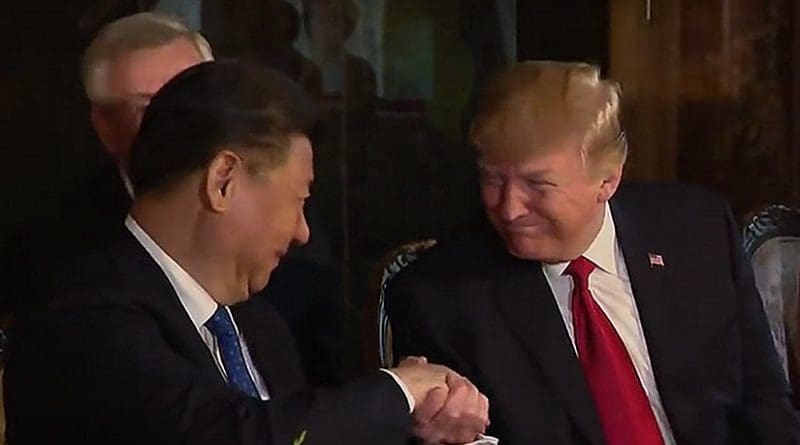Not The Bloody Trade War Talk Again – OpEd
As the talks of trade war heat up from across the pond again, it is time to highlight some home truths. A beleaguered US Presidency, completely sabotaged by opposing domestic interests between several differing factions, found a rare bipartisan point of solidarity, as hawkish Democrats urged on Trump to be stern in face of a possible trade war. The argument lies like this. Chinese economic prowess has coerced several American companies, to start joint ventures or lose Chinese markets. That led to diffusion of technology, and sharing of intellectual property. Technology and Intellectual property is now proving to be new battleground, as Bob Lighthizer, the United States trade representative, is apparently now preparing a trade case against extensive misuse of IP.
That’s, however, easier said than done. Firstly, the WTO rules favour the Chinese side. During the accession talks in the 90s, special rules were developed due to the special geopolitical situation and trade demands of the era. Those rules were found to be mutually beneficial, or as the Chinese side say, Win-Win, for both the countries. In the complex modern trade systems, no country can live in relative autarky, and complex supply chains across the globe keeps the consumer product cost down.
But things changed since Snowden’s defection and the subsequent competition in the fields of Hypersonic missiles, artificial intelligence and space race to Mars. Now, with the Russian interference in American elections, the anti foreign intelligence fever is gripping the West again, and when there’s domestic dysfunction, it is usually seen that ruling elites find bipartisan cause in foreign policy. I’m not saying that’s the exact cause of the Trumpian bravado with regards to trade, but it might explain some motivations.
Trade also saw a boost as Chinese exports rose 10.9 percent year-on-year in July and trade surplus in July was tipped at $46.08 billion reported by Reuters. The surplus with the US, China’s largest export market, rose 6.5 percent in the first half to $117.5 billion indicating an increasing demand for Chinese products and manufactured goods, among the rural class in US, who are mostly devout Trump voters, and who will be hurt the most in any trade war.
The American business lobbyists are already afraid of what might happen if Trump carries through this threat. In an exclusive report in Reuters, several members of the business community claimed that they are extremely concerned about “general disorganization and inconsistency at the White House”. They warned that Trump might make matters worse with China if he follows through, which will be detrimental mostly for American business, as there will surely be retaliation.
So what now? It is a possibility, however unlikely, that there might be a trade war, but if a trade war genuinely happens it won’t last very long. Chinese policies might include a simple appeal to WTO, which will most likely be against the US. If there’s tariff and trade protectionism, there could be counter tariffs. Penalties on companies like Apple and Starbucks and IBM could be pondered upon, which will hamper massive operations within China of US companies. American export like Soybeans could be targeted.
Most importantly, Chinese production now enjoys a demand, in Europe, especially in Germany and Britain. The European geopolitics is the reason for this, because German and American interests has shifted in the last decade, and Germany needs Chinese investment as well as Chinese political support for its flagship climate projects. British interests are also straight forward, and economic, post Brexit. A trade war between China and US would divide Europe even further, and a lot more than sanctions on Russia.
Ultimately, of course, there’s no clear winner from a trade war. And it is irrational (and unlikely) to think American administration truly contemplates such self-destructive behaviour. The threats about trade war are mostly because of Trump’s disappointment with China over North Korea. Nonetheless, governments miscalculate. Sometimes at the cost of everyone else around.
Published at Bombs & Dollars

